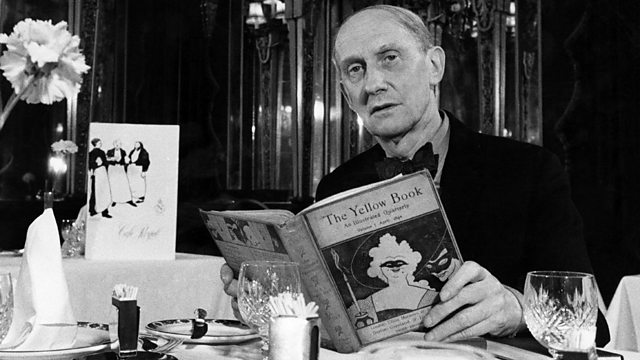Lord David Cecil - Muses & the Beau Monde
- Lilium

- May 12, 2021
- 3 min read

Lord Edward Christian David Gascoyne-Cecil, CH, born 9 April 1902, was a British biographer, historian, and scholar.
David Cecil was the youngest of the four children of James Gascoyne-Cecil, 4th Marquess of Salisbury, and the former Lady Cicely Gore. His siblings were Lady Beatrice Edith Mildred Cecil (later Baroness Harlech), Robert Gascoyne-Cecil, 5th Marquess of Salisbury and Lady Mary Alice Cecil (later Mary Cavendish, Duchess of Devonshire).
Cecil was a delicate child, suffering from a tubercular gland in his neck at the age of 8 years, and after an operation he spent a great deal of time in bed, where he developed his love of reading. Because of his delicate health his parents sent him to Eton College later than other boys, and he survived the experience by spending one day a week in bed. After school he went on to Christ Church, Oxford, as an undergraduate.

Cecil read Modern History at Oxford and in 1924 obtained first-class honours. From 1924 to 1930 he was a Fellow of Wadham College, Oxford. With his first publication, The Stricken Deer (1929), a sympathetic study of the poet Cowper, he made an immediate impact as a literary historian. Studies followed on Walter Scott, early Victorian novelists andJane Austen.
During the 1920s Cecil struck up a friendship with societal hostess Lady Ottoline Morrell, spending time at her country house Garsington Manor, in the village of Garsington, near Oxford. Garsington hosted an array of artists, writers and intellectuals including D. H. Lawrence, T. S. Eliot, E. M. Foster, Bertrand Russell, Virginia Woolf and Siegfried Sassoon. Lady Ottoline was a prolific amateur photographer and took many photos of Cecil throughout the 20s and 30s. Her photo albums are now in the National Portrait Gallery archive.
In 1932 Cecil married Rachel MacCarthy, daughter of the literary journalist Sir Desmond MacCarthy. They had three children - actor Jonathan Hugh; a second son, actor, historian and journalist Hugh Peniston; and Alice Laura a literary agent.

In 1939 he became a Fellow of New College, Oxford, where he remained a Fellow until 1969, when he became an Honorary Fellow.
In 1947 he became Professor of Rhetoric at Gresham College, London, for a year; but in 1948 he returned to the University of Oxford and remained a Professor of English Literature there until 1970. For a time Cecil was an associate of the literary group known as the "Inklings", which included notable authors such as J.R.R. Tolkien, C.S. Lewis, and Owen Barfield.
While a professor at New College Cecil's pupils included Kingsley Amis, Bidhu Bhusan Das, R. K. Sinha, John Bayley, the Milton scholar Dennis Burden, and Ludovic Kennedy. Neil Powell describes Amis's relationship with him, or lack of a relationship, as follows:
[Amis's] allocated supervisor was Lord David Cecil, who seemed disinclined to supervise anything at all; after a term and a half had passed without any contact between them, Kingsley decided to go in search of him at New College. This caused much amusement at the porters' lodge, as if he had asked for the Shah of Persia: 'Oh no, sir. Lord David? Oh, you'd have to get up very early in the morning to get hold of him. Oh dear, oh dear. Lord David in college, well I never did.'
During his academic career Cecil published studies of Hardy, Thomas Gray and Dorothy Osborne, Shakespeare and Walter Pater. As well as his literary studies he also published a two-volume historical biography of Lord Melbourne (to whom he was distantly related) and appreciations of visual artists - Augustus John, Max Beerbohm, Samuel Palmer and Edward Burne-Jones. In retirement he published further literary and biographic studies of Walter de la Mare, Jane Austen, Charles Lamb and Desmond MacCarthy, as well as a history of his own family, The Cecils of Hatfield House and an account of Some Dorset Country Houses. His anthology of writers who had given him special pleasure, Library Looking Glass, appeared in 1975.
Rachel Cecil died in 1982. Lord David Cecil died 1 January 1986, aged 83, in Cranborne, Dorset, England.

Reading Recommendations & Content Considerations
Desert Island Discs - Lord David Cecil























































































































































Comments